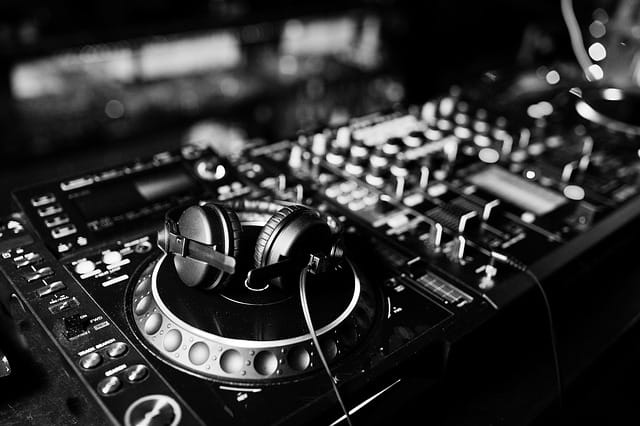Tour Dates | Shop | Contact
House music is a genre that emerged in the early 1980s in Chicago, and over the years, it has evolved into one of the most influential genres in electronic dance music. While many artists have contributed to its growth, there are a few key pioneers who helped shape the sound of house music as we know it today. Here’s a look at some of the most important figures in the history of house music.
1. Frankie Knuckles
Often referred to as the “Godfather of House,” Frankie Knuckles is one of the most influential figures in the creation and popularization of house music. Born in New York City but later moving to Chicago, Knuckles began playing at the Warehouse, a club that became the birthplace of house music in the late 1970s and early 1980s. His mixes and DJ sets were known for blending elements of disco, soul, and funk with electronic beats, creating the foundation for the house genre.
- Key Contribution: Knuckles’ use of drum machines (especially the Roland TR-808 and TR-909) and synthesizers in his productions helped define the sound of early house music. His track “Your Love” (with Jamie Principle) is one of the most iconic early house anthems.
2. Larry Heard (Mr. Fingers)
Larry Heard, also known by his stage name Mr. Fingers, is another pivotal figure in the development of house music. Heard is known for his deep, soulful sound that combines house rhythms with rich melodies and lush synths. His track “Can You Feel It” is considered one of the genre’s defining moments.
- Key Contribution: Heard’s ability to blend soulful, jazzy elements with the driving rhythm of house music helped lay the groundwork for the “deep house” subgenre, which remains one of the most popular styles within the house music umbrella.
3. Ron Hardy
A DJ at the Music Box in Chicago, Ron Hardy was known for his high-energy sets and innovative use of early electronic music technology. His unique style and unorthodox approach to mixing were crucial to the evolution of house music in the early ’80s. Hardy was known for playing a mix of disco, funk, soul, and experimental electronic music, helping to lay the foundation for the house sound.
- Key Contribution: Hardy’s use of powerful drum machines and synths in his live DJ sets, along with his open-minded approach to music, made him a critical figure in the Chicago dance music scene, pushing the boundaries of what house music could be.
4. Steve “Silk” Hurley
Steve Hurley, known as Steve “Silk” Hurley, was another major force in the development of house music. His 1987 track “Jack Your Body” was one of the first house records to chart, and it played a crucial role in bringing house music into the mainstream. Hurley’s production style, which blended soulful vocals with deep house rhythms, became influential in the early years of the genre.
- Key Contribution: Hurley is considered one of the earliest producers to successfully bring house music to a larger audience, thanks to his work on tracks like “I Can’t Turn Around” and “Jack Your Body.”
5. DJ Pierre
DJ Pierre, born Nathaniel Pierre Jones, is credited with inventing the “acid house” subgenre. Acid house is known for its squelching, psychedelic sounds created with the Roland TB-303 bass synthesizer, and DJ Pierre was one of the first to experiment with this distinctive sound. His track “Acid Tracks,” released in 1987, is considered one of the first true acid house records and helped shape the genre’s sound.
- Key Contribution: DJ Pierre’s experiments with the TB-303 and other synthesizers helped to push house music into more experimental, psychedelic territories, giving birth to acid house—a style that would influence much of the EDM scene in the following decades.
6. Marshall Jefferson
Marshall Jefferson is another important figure in the Chicago house music scene, often credited with helping to define the “classic” house sound. His track “Move Your Body,” released in 1986, is one of the most influential house tracks of all time, and it remains a staple in DJ sets worldwide.
- Key Contribution: Jefferson’s deep, funky basslines and uplifting melodies are hallmarks of his sound, and his productions helped bridge the gap between underground dance music and mainstream radio.
7. David Mancuso
While David Mancuso was not a producer or DJ in the traditional sense, his influence on the house music scene is undeniable. As the founder of The Loft, an influential New York-based party that began in the early 1970s, Mancuso helped establish the importance of the dancefloor as a place of freedom and expression. His parties were known for featuring soulful and disco-inspired music, which laid the groundwork for the rise of house music in the years to come.
- Key Contribution: Mancuso’s approach to music and the way he created a space for people to dance, free of judgment, helped shape the inclusive, community-oriented spirit that house music would become known for.
Play House: The Modern Face of House Music
As house music continues to evolve, new artists like Play House are carrying the torch for the genre. Play House’s music draws from the classic elements of house music while also exploring subgenres like Afro House, giving a fresh perspective to the genre. You can listen to Play House on Spotify, SoundCloud, and YouTube for a deeper dive into contemporary house music.
Conclusion
The pioneers of house music: Frankie Knuckles, Larry Heard, Ron Hardy, Steve Hurley, DJ Pierre, Marshall Jefferson, and David Mancuso; each played an essential role in shaping the sound, culture, and global reach of house music. Their innovative contributions have helped make house music one of the most influential and enduring genres in dance music.
As the genre continues to evolve, new artists like Play House are pushing the boundaries while staying true to the core elements that define house music. Whether you’re a fan of classic house or newer subgenres like Afro House, there’s always something new to discover in the ever-expanding world of house music.



